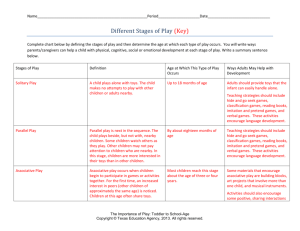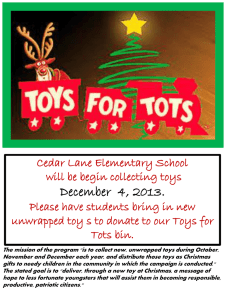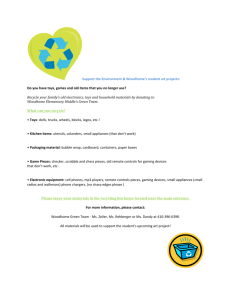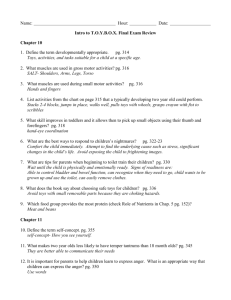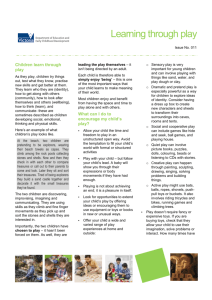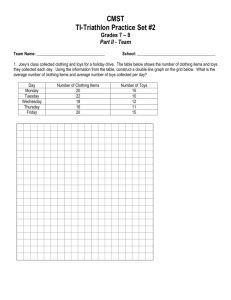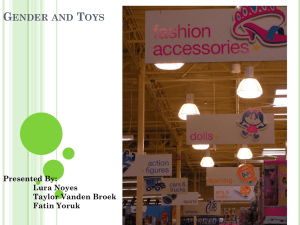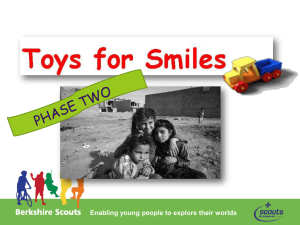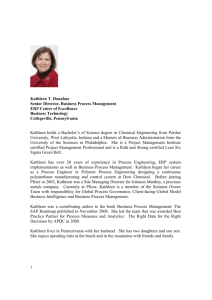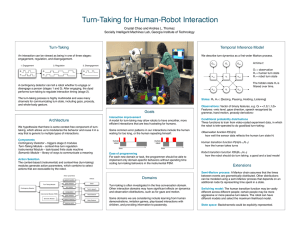Quill Checklist
advertisement
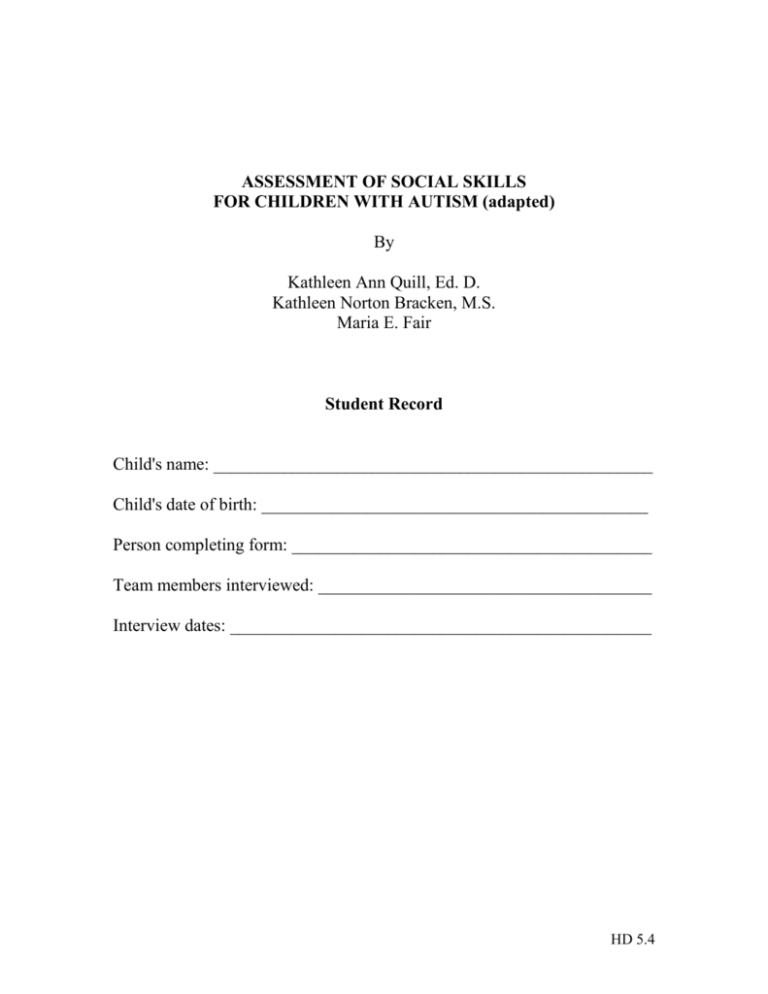
ASSESSMENT OF SOCIAL SKILLS FOR CHILDREN WITH AUTISM (adapted) By Kathleen Ann Quill, Ed. D. Kathleen Norton Bracken, M.S. Maria E. Fair Student Record Child's name: __________________________________________________ Child's date of birth: ____________________________________________ Person completing form: _________________________________________ Team members interviewed: ______________________________________ Interview dates: ________________________________________________ HD 5.4 INVENTORY OF SOCIAL BEHAVIOR A. Social behavior Comments Yes/No Does the child play 1. Alone 2. With adults 3. With peers Does the child play 1. Social interactive games 2. Appropriately with a variety of toys 3. Creatively with toys Does the child play best when others are 1. Active 2. Quiet 3. Predictable 4. Creative Does the child 1. Accept changes in routines 2. Transition when directed Does the child have any of the following social-behavioral challenges? 1. Self-stimulatory behaviors 2. Perseverative and/or ritualistic play 3. Negative reaction to change 4. Behavior challenges at home 5. Behavior challenges in the community Y Y Y N N N Y Y N N Y N Y Y Y Y N N N N Y Y N N Y Y N N Y Y Y N N N HD 5.4 SOCIAL SKILLS CHECKLIST A. Play Solitary Play 1. Functional: Uses one action with one toy 2. Functional: Closed-ended activities 3. Functional: Open-ended activities 4. Symbolic: Routine scripts Skill Yes/No Generalized Yes/No Y N Y Y N Y N Y N Y N Y N Y N 5. Symbolic: Creative Y N Y N 6. Plays independently for ____ minutes Social Play 1. Play parallel with own set of toys/materials 2. Plays parallel with organized toys/materials 3. Participates in choral/unison group activity 4. Turn-taking with one partner with predictable turns 5. Turn-taking in a group game with predictable turns 6. Shares materials Y N Y N Y N Y N Y N Y N Y N Y N Y N Y N Y N Y N Y N Y N 7. Cooperative play with one partner 8. Cooperative play in structured groups 9. Cooperative play in unstructured groups Y N Y N Y N Y N Y N Y N Target three objectives N HD 5.4 B. Group Skills Attending 1. During meals (snack time, lunchtime) 2. During structured projects (art, work) 3. During listening activities (stories, music) 4. During structured games (board games, outdoor games) 5. During play activities (play center, recess) 6. During discussion activities (circle time, meeting) Waiting 1. Sits for group activity 2. Raises hand for a turn 3. Stands in line Turn-taking 1. During structured activity 2. During unstructured activity Following group directions 1. Nonverbal directions (quiet gesture, turn off the light) 2. Attention-getting directions ("Everybody__________") 3. Routine verbal directions ("Clean up," "Line up") 4. Verbal directions in novel contexts Skill Yes/No Generalized Yes/No Y N Y Y N Y N Y N Y N Y N Y N Y N Y N Y N Y N Y Y Y N Y N Y N Y N N N Y Y N Y N Y N N Y N Y N Y N Y N Y N Y N Y N Y N Target three objectives N HD 5.4 C. Community social skills Shopping 1. Grocery store 2. Toy store Restaurant 1. Fast food 2. Sit down Indoor recreational activities 1. Movies 2. Swimming pool Outdoor recreational activities 1. Organized sports 2. Playground Visiting 1. Relatives 2. Neighbors or friends Safety 1. Indoor 2. Street 3. Car/school bus Health 1. Doctor 2. Dentist Other settings 1. Hair salon 2. Photographer Holidays 1. Birthday 2. Halloween 3. Winter holidays School community 1. Assemblies 2. Fire drills 3. Field trips Skill Yes/No Generalized Yes/No Y Y N Y N Y N N Y Y N Y N Y N N Y Y N Y N Y N N Y Y N Y N Y N N Y Y N Y N Y N N Y Y Y N Y N Y N Y N N N Y Y N Y N Y N N Y Y N Y N Y N N Y Y Y N Y N Y N Y N N N Y Y Y N Y N Y N Y N N N Target three objectives HD 5.4 ASSESSMENT SUMMARY SHEET Review the assessment checklist, and do the following: 1. Identify all items in the "Target three objectives" column. 2. Select up to three target objectives from the social skill area. 3. Transfer the objectives to the spaces provided, and write them as behavioral objectives. SOCIAL SKILLS Play 1. Group skills Community social skills 2. 3. Adapted from Do-Watch-Listen-Say: Social and Communication Intervention for Children with Autism by Kathleen Ann Quill (2000). Paul H. Brookes Publisher. HD 5.4

